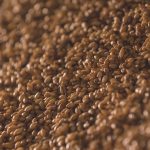Have you ever come across the phrase “natural flavors” listed on the ingredients of packaged foods and beverages? Ever wondered what they were? Or even what they might be doing to your health? You might want to start paying attention to these so-called “natural” ingredients because they might be more of a marketing ploy than a health-supportive ingredient.
What Are Natural Flavors?
According to the US Food and Drug Administration (FDA), natural flavor or natural flavoring is defined as:
“the essential oil, oleoresin, essence or extractive, protein hydrolysate, distillate, or any product of roasting, heating or enzymolysis, which contains the flavoring constituents derived from a spice, fruit or fruit juice, vegetable or vegetable juice, edible yeast, herb, bark, bud, root, leaf or similar plant material, meat, seafood, poultry, eggs, dairy products, or fermentation products thereof, whose significant function in food is flavoring rather than nutritional (1).”
Say what?! Basically, it is the “essence” of a food flavor, but not necessarily the flavor from that specific food item. It might instead be a reduction of a food item, or a by-product of a food item. Natural flavors are found in many processed and packaged foods, fast food, and beverages like sodas and tea. They are even found in many foods that are promoted as healthy, such as herbal teas, sparkling waters, protein bars and powders.
Natural vs. Artificial Flavors
Natural flavors are derived from nature, whereas artificial flavors are derived from synthetic ingredients. That doesn’t mean that natural flavors don’t also have synthetic ingredients, or that they aren’t altered or manipulated in a lab.
Surprisingly, many experts agree that natural and artificial flavors are not all that different. So what is the big difference? Well for one, “natural” sounds better than “artificial.” Yes, natural flavors are derived from substances found in nature, but that doesn’t mean that they are healthier or more nutritional than artificial flavors. In fact, many natural flavors are very much synthetic (2).
In fact, there are some scientists that argue that artificial flavors may actually be safer for our health than natural flavors because natural flavors may contain hundreds of chemicals that are not necessarily tested by the FDA. For artificial flavors, the ingredients must be approved as safe to consume (3).
Why Use Natural Flavors?
The reason food companies use natural flavors is to cut costs and provide the flavor of a certain food item without actually using 100% of that said food item. Food flavors also help to increase sales. Adding natural flavoring to foods and beverages makes them taste “better,” “fresher,” and – get this – more addictive! Some food companies intentionally make the flavor short-lived so that you are inclined to eat more of their product (4)!
Let’s go back to that word “fresher.” Yes, natural flavoring is added to make a food item taste fresher when it might not be fresh. As stated on the Environmental Working Group page, “they [natural and artificial flavors] dupe your taste buds and smell receptors into believing you are drinking fresh orange juice when it really may be rather old (5).”
It sounds like our taste buds are being hijacked. These foods are changing our preferences for real, whole foods. Processed and sugary foods and beverages change our palate so that fruits and veggies on their own are not sweet or flavorful enough (6).
How Do Natural Flavors Affect My Health?
Food companies are not required by the FDA to disclose all of the ingredients of natural flavors as long as those used are considered generally recognized as safe (GRAS). According to an article on CNN, “on food nutrition labels, companies are legally required to disclose the specifics of all the food’s ingredients, except the flavoring — according to the FDA and the food industry, flavors don’t qualify as an ingredient.”
As for health concerns, Vandana Sheth, spokesperson for the Academy of Nutrition and Dietetics, believes that artificial and natural flavorings could be contributing to food cravings, which could lead to weight gain. Foods that aren’t as healthy or aren’t as fresh are created to be more appealing to our taste buds, making us prefer those over real foods found in nature (7). And eating foods that aren’t as fresh means the nutritional value has declined as well.
The Bottom Line
We may never know what exactly is in the natural flavors unless we call up the headquarters and ask, and even then, they might not disclose much. So if you don’t want to let food companies hijack your ‘buds and determine which foods you crave, start checking the nutrition facts label on the food you eat. Or better yet, begin incorporating more whole, organic foods into your diet, such as vegetables, fruits, quality proteins and healthy fats.
And as for tea, rest assured that I will not be using natural OR artificial flavorings in my teas to make them taste better. These tea blends will taste delicious on their own!
Take back control of your taste buds!
What are your thoughts on natural and artificial flavors? Leave me a comment below!




